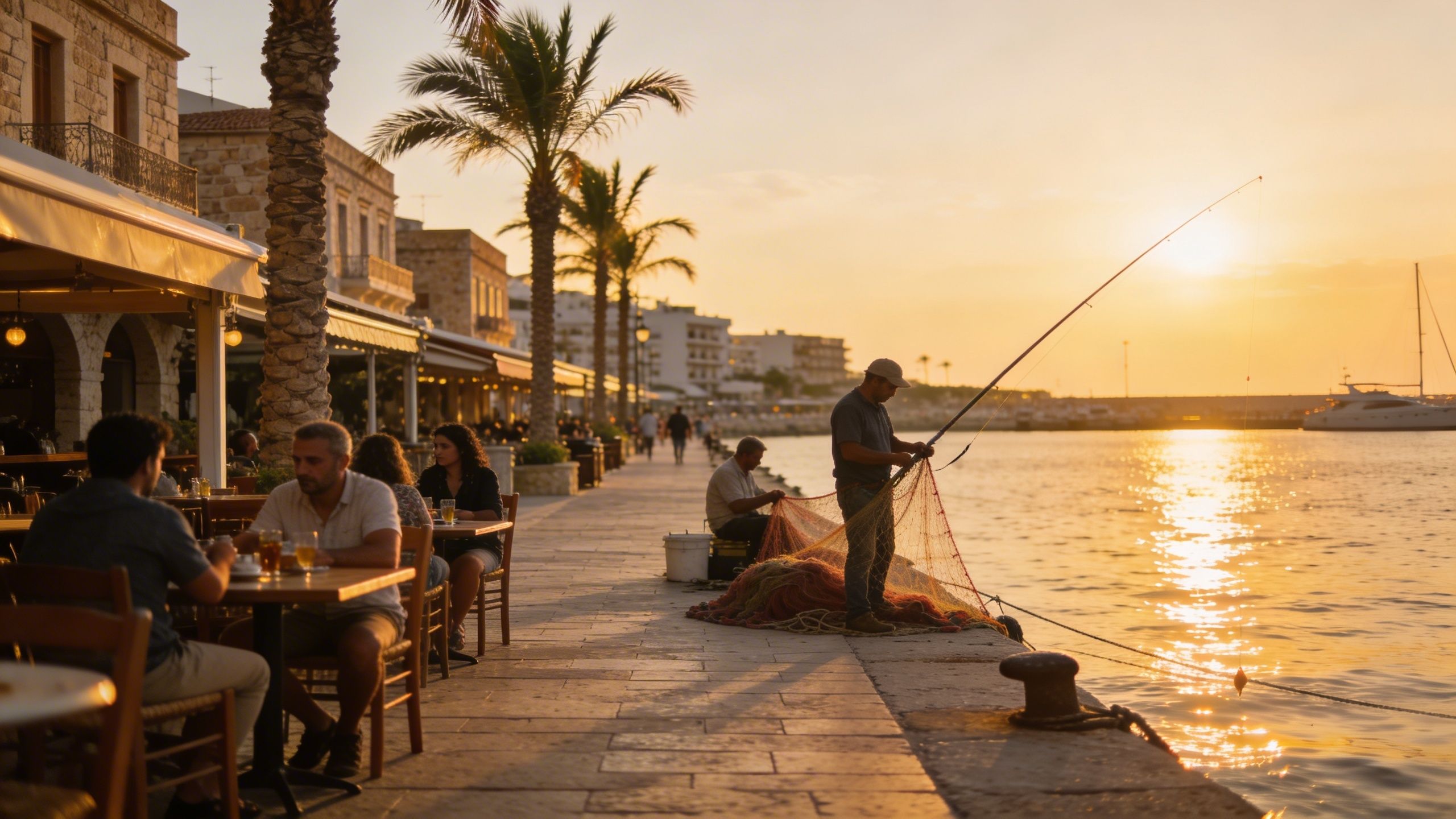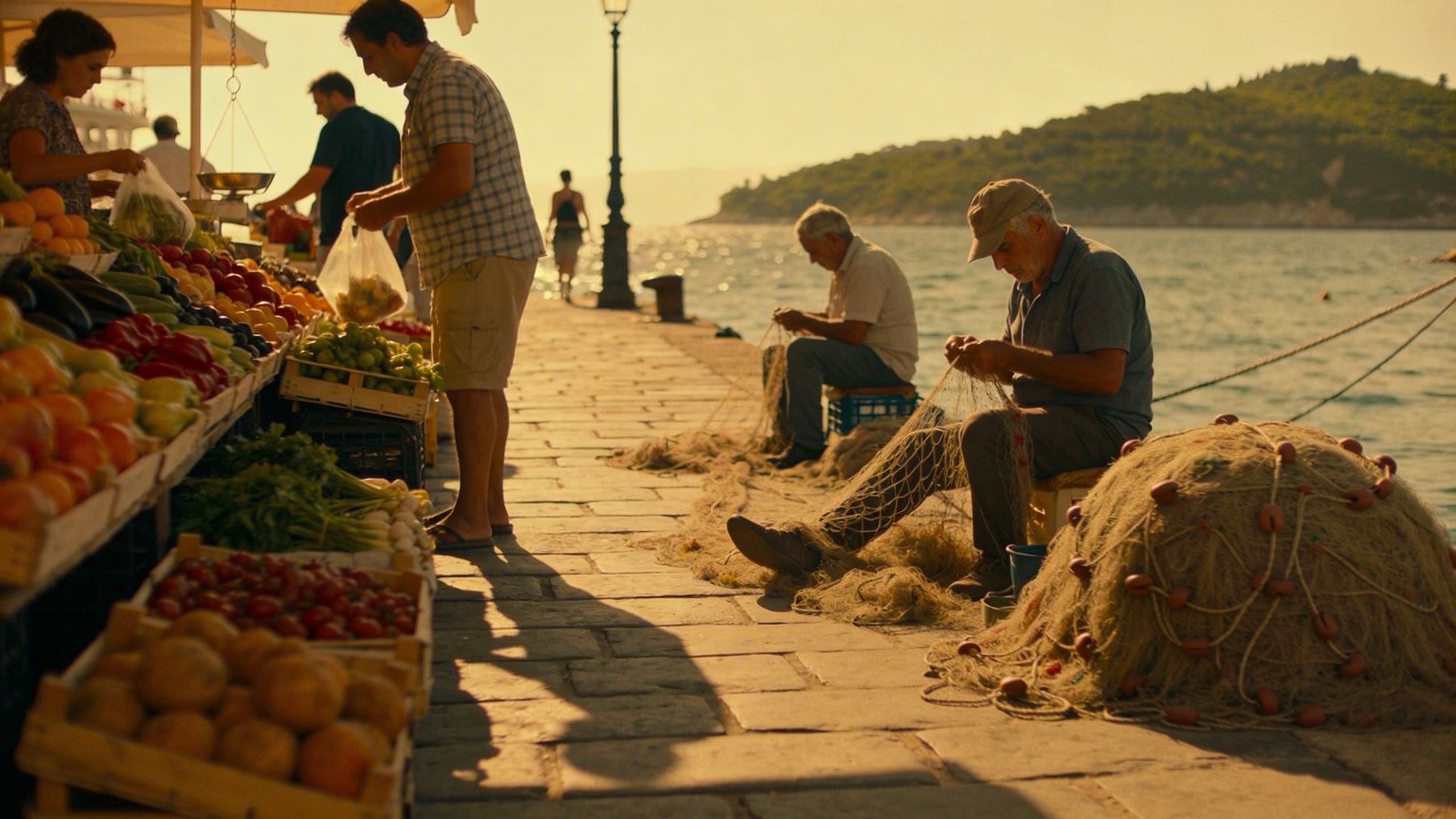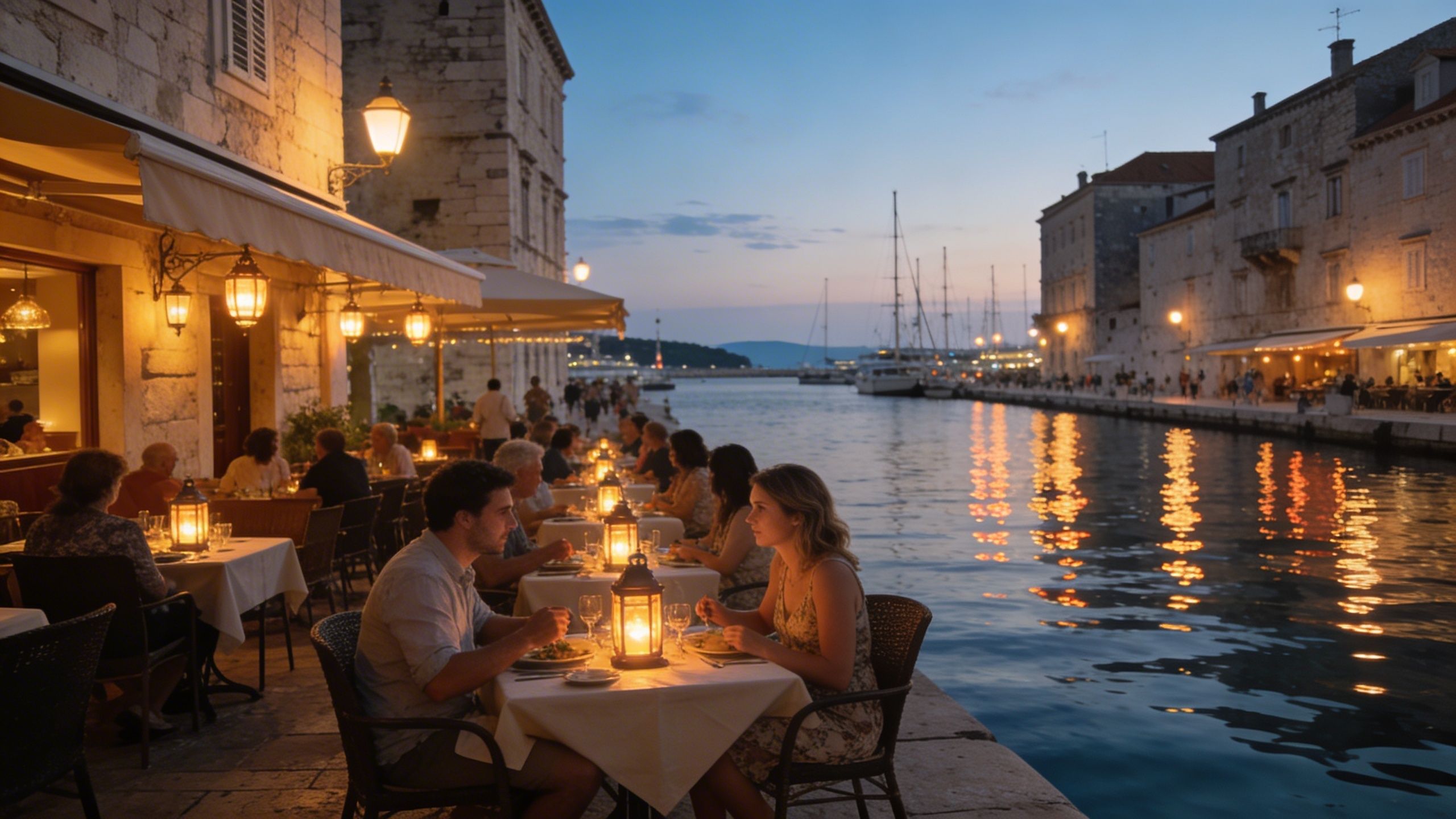Greece: Stewardship, Cadastre and Seasonal Reality
Greece’s daily rhythms shape property value as much as legal formalities: learn where title clarity, Cadastre checks and seasonal life change the deal.
Imagine the low, late-morning sun on a marble-paved square in Chania, the scrape of a barista’s tamper and the sea beyond a honey-coloured row of neoclassical facades. That combination of measured quiet and immediate pleasure — a market, a café, a harbour — is Greece as a lived place: domestic, tactile, layered with history. For buyers from abroad this scenery both seduces and requires careful translation: cultural rhythms shape value as much as statutes do, and a street you fall in love with in summer can feel very different in January.
Living the Greek Rhythm
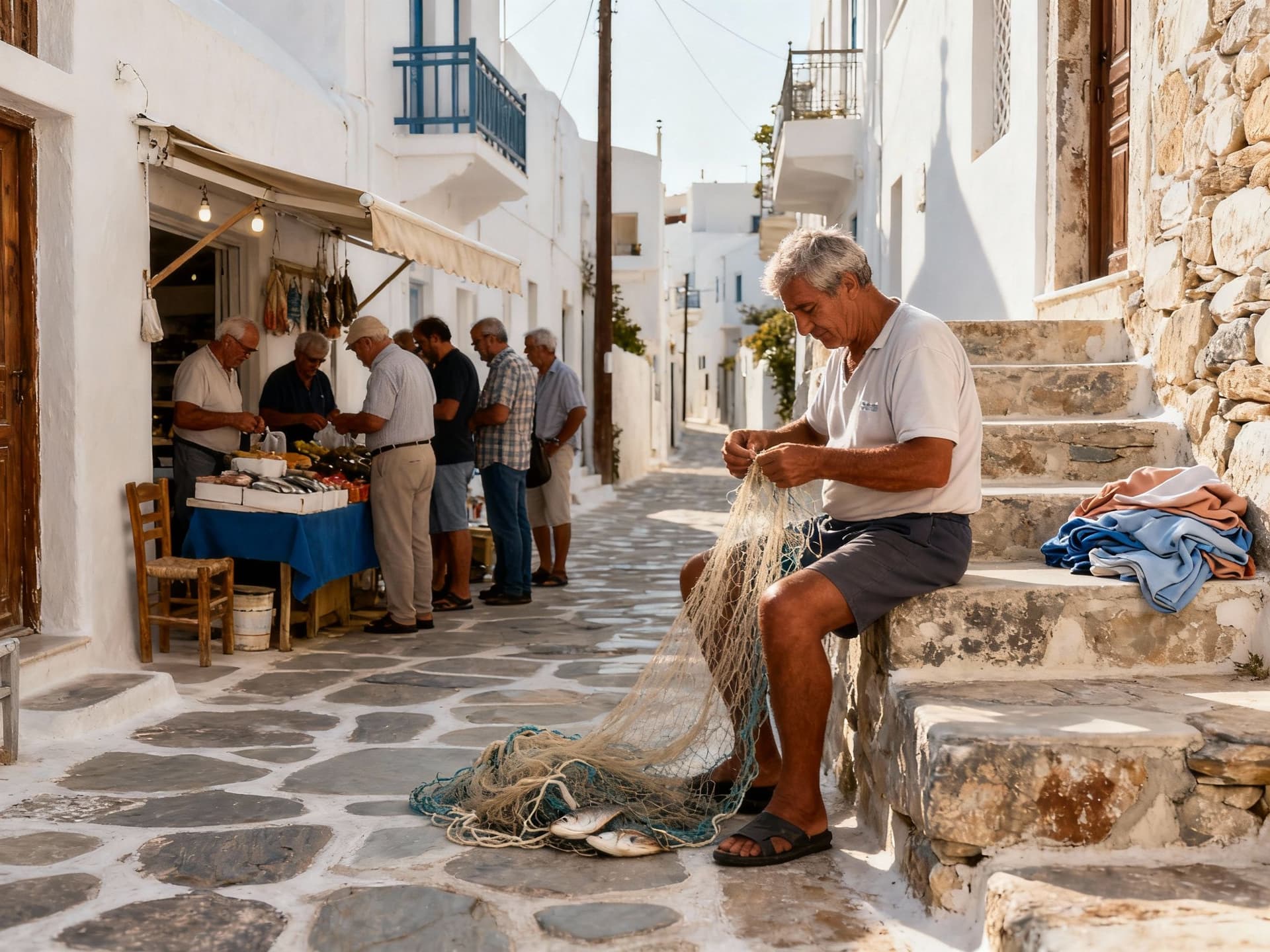
A Greek day begins with espresso and conversation and ends with slow food and confident repose. In Athens neighbourhoods such as Plaka and Koukaki you hear morning market trade and evening piano bars. On the islands, streets narrow into alleys where locals mend nets or lay out fresh pastries. Seasonal life matters: olive harvests in autumn, Carnival in February, the hush of small towns in winter. These cycles influence occupancy, rental demand and the practicalities of owning — from heating needs to short‑let seasonality — and therefore the legal and financial choices you make.
Neighbourhoods that reveal the day-to-day
Athens’s Kolonaki offers measured refinement: museum‑adjacent apartments, mature plane trees and discreet concierge culture. Contrariwise, the fishing village of Naoussa on Paros is convivial and bright, where terrace life and taverna tables predominate. Chania’s waterfront — Chalepa and Halepa Road — pairs Venetian architecture with an easy local routine. Know the street: buying on Akti Kountouriotou in Hydra is a different life from an inland plot near Kardamyli.
Food, markets and the architecture of daily pleasure
From morning stalls at Varvakios in Athens to the bakeries of Naxos, food is the social infrastructure of Greek life. This matters for property: ground-floor units adjacent to markets are lively but noisier; a house on a pine‑scented promontory is quieter but requires reliable utilities. Many parts of Greece are now recorded in the national Cadastre, which clarifies titles and planning history — a practical boon when assessing provenance and restoration potential.
- Lifestyle highlights to check in person
- Morning espresso on Plateia Syntagma (Athens) or the Venetian harbour (Chania).
- Friday night taverna meal in Naoussa (Paros) or Psyrri (Athens) for live music and local tables.
- A winter olive‑harvest weekend in Mani to appreciate practical access and heating needs.
Making the Move: Practical Considerations
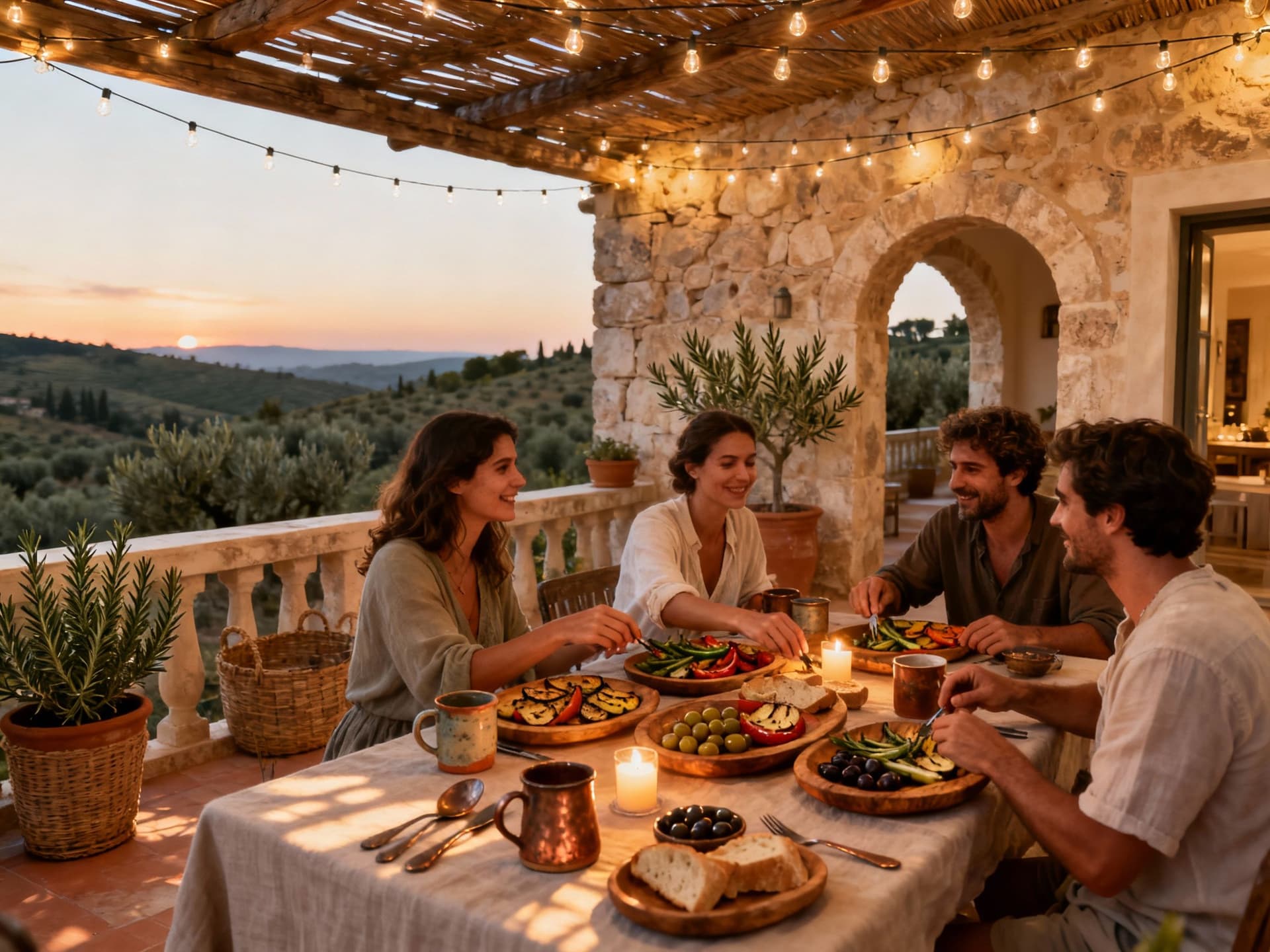
Romance must be measured against legal clarity. Greece welcomes foreign buyers, but there are a handful of decisive, location‑specific requirements — a tax number (AFM), a notary deed, and an understanding of transfer taxes or VAT rules. These steps are routine when you work with an experienced lawyer and an agent who knows the neighbourhood cadence.
Property types and what they mean for life
A neoclassical apartment in Plaka offers proportion, high ceilings and immediate urban life; a restored stone house in Pelion gives a different velocity — seasonal isolation and garden labour. New builds can attract VAT (often 24%) while resale attracts a transfer tax (commonly around 3%). Recent policy shifts to the residence‑by‑investment thresholds also reshape where investor demand concentrates, altering rental dynamics in specific islands and suburbs.
Working with local experts who understand place
A skilled lawyer, a surveyor familiar with seismic standards, and an agency attuned to local seasonality are the minimal team. Good counsel will confirm Cadastre entry, check for building permits, examine easements and verify that utilities are serviceable year‑round. Agencies do more than show homes: they translate how a district lives across seasons and which streets are genuinely quiet after October.
- Steps that blend lifestyle and legal clarity
- Obtain a Greek tax number (AFM) early — it’s required for utilities and the purchase contract.
- Commission a technical survey that notes insulation, heating and winter access; these affect livability and insurance.
- Ask your lawyer to verify Cadastre/land‑registry records and any archaeological overlays that often restrict renovation.
Insider Knowledge: What Expats Wish They’d Known
Beyond paperwork, there are unadvertised frictions: power to the grid can be intermittent in remote locations, municipal rates differ by prefecture, and some islands require a specific permit for purchases near sensitive border zones. Many expats under‑estimate the day‑to‑day administrative rhythm — queuing at municipal offices, translating documents, and the necessity of in‑person signatures for banks.
Language, community and local custom
Greek is the language of transaction and neighbourliness; a few phrases ease integration and signalling respect. Markets, kafeneia and church fêtes are the social registers where you become known. If you intend to live year‑round, seek neighbourhoods with mixed‑age populations — they sustain shops and services in winter. Expat enclaves can be comforting but often compress the cultural experience.
Longer-term stewardship and hidden constraints
Think in terms of stewardship: old houses require conservation‑minded investment; coastal plots require erosion and drainage plans; properties near listed monuments face strict restoration rules. Confirm whether your plot sits within town planning boundaries — out‑of‑plan land may be impossible to connect to utilities, removing resale prospects.
- Red flags to investigate before you sign
- Title missing from Cadastre or complex multiple heirs listed in land registry records.
- Unresolved building permits, illegal additions, or archaeological restrictions.
- Properties advertised as ‘close to the sea’ but lacking practical year‑round road or power access.
Conclusion: The pleasure of living in Greece is inseparable from a practical respect for place. The sunlit terrace, the local baker and an olive tree are reasons to buy; the clarity of title, a conscientious lawyer and a local agent are the means. Start with afternoons in the neighbourhood you love, then assemble the team who will turn that feeling into a secure property. When your advisors speak the language of streets and statutes, you buy both a home and a way of life.
Former Copenhagen architect who relocated to Provence, offering relocation services, market analysis, and a curator’s eye for authentic regional design.
